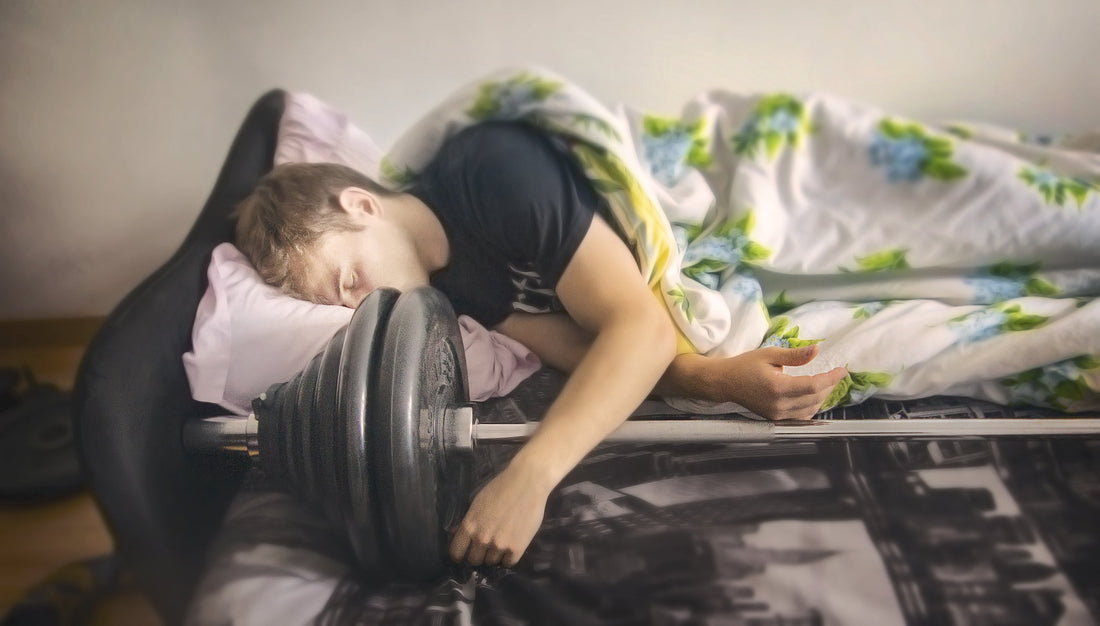By a show of hands: Who here hasn’t had great sleep for a while? You can be honest; this is a judgment-free zone. The truth is, deep down, we all understand how vital sleep is for our health, cognition, and fitness results. Yet, despite the mounting evidence, we don’t give it nearly as much attention as we should. Today, we’ll go over precisely why getting more sleep is essential and how you might go about improving your sleep quality.
Sleep for Cognition and Brain Health
Think back of a time where, for whatever reason, you didn’t get good sleep for several nights in a row. How did you feel during these days? Chances are, you were irritable, foggy, tired, unmotivated, and unable to focus. Ironically, we sacrifice sleep, so we have more time for work, study, and side projects. But, the rest we sacrifice hinders our productivity, and we mostly shoot ourselves in the foot. Dozens of studies have shown that getting enough sleep is vital for our overall cognition. What’s more, some research also suggests that getting at least seven hours of sleep is positively correlated with better brain health and lower incidence of age-related brain disorders.
The Vital Importance of Sleep For Fitness
Ah, this is where things get even more exciting. In one notable study from 2010, ten subjects underwent two identical protocols that were spaced at least three months apart. In the first protocol, they were allowed to sleep for 5.5 hours per night. In the second protocol, they were allowed to spend 8.5 hours in bed. Both experiments lasted for two weeks. In the sleep-deprived condition, subjects lost fat and lean tissue at a 20/80 ratio. In the 8.5-hour sleep condition, however, they lost at a rate of 50/50. With everything else being the same (training, nutrition, everyday life, etc.), simply getting more sleep led to significantly higher fat loss.
Other studies have found that getting enough sleep is vital for:
- Rates of protein synthesis, muscle growth, and post-training recovery;
- Athletic performance – power output, strength, speed, endurance, agility, accuracy, and more;
- Motivation and willingness to work hard and have better workouts;
How to Improve Our Sleep
Sleep is vital – that much is clear. The question is, how might we go about improving the quality and length of our sleep? Here are some great ideas:
1) Have a pre-bed ‘power down’ routine
Having a relaxing routine is a great way to make it easier for yourself to fall asleep. For example, you can meditate, take a shower, read, do some journaling, stretch, and hit the sack.
2) Maintain a regular schedule
Going to bed and waking up at the same time allows your body to get used to a consistent schedule, which makes it easier for you to fall asleep and wake up in the morning.
3) Limit your caffeine intake
As a stimulant, caffeine has a half-life of about six hours. So, to prevent it from disrupting your sleep, it’s best to limit it in after 2 pm, assuming you go to bed around 10-11 pm.
4) Take a sleep supplement
Certain substances – such as melatonin and magnesium – relax us and allow us to fall asleep more quickly and sleep better. Nightmare by InsaneLabz is an excellent product you can take before bed to improve both the quantity and quality of your sleep.
5) Improve your sleeping environment
An optimal sleep environment is cool (between 65 and 70 degrees C), quiet, and dark. Also, it’s crucial to have a comfortable mattress and pillow, as they impact your sleep quality hugely.

